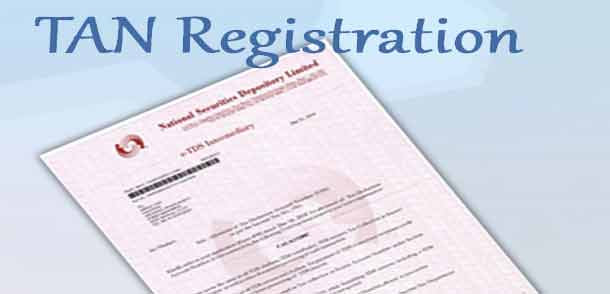Introduced under Section 203A of Income Tax Act of 1961, TAN (Tax Deduction and Collection Account Number) is a 10-digit numerical code issued by the Income Tax Department of India.
This identification number is required for every individual who is eligible for TDS (Tax Deduction at Source) or TCS (Tax Collection at Source).
- Of 10,894 newly incorporated companies in the March of 2017, 94.7% got TAN allotment within 4 hours.
- Almost 99.73% of applicants were issued TAN within 24 hours of application.
Trying to understand what is TAN number, it is important to note that this number is essential for every transaction related to TDS and TCS (including challan generation, payments, information check, etc.).
Even clearance of the TDS/TCS challan at a financial institution requires TAN number, failing to register for which can attract a penalty.
Unlike PAN number which is issued to every individual with a source of income within India, TAN number is limited to only those liable for TDS and TCS.
Consequently, it is vital to understand which individuals or organisations must opt for TAN application. Let’s take a look.
- Hindu Undivided Family that are liable to pay TDS.
- Companies/firms/trusts are liable to collect TCS.
- Central/State government or local authorities are eligible to collect TCS.
- Sole proprietors who are liable to collect TCS.
Even the application of credit requires this number since all financial and ITR related information must be presented while availing a line of credit. To generate proper ITR documents, it is vital to have a TAN number.
Consequently, be it an individual applying for a personal loan or a firm availing a business loan, TAN number is vital to complete the procedures.
Importance of TAN number
It is important for every entity that is eligible for a TAN number to register as soon as possible. It is mandatory to register and advisable to check the related information regularly as this can be considered as one of the essential financial habit business owners should have. Periodic inspection of details including deductions and collections, submission details, etc. Furthermore, this number is crucial to apply to enjoy the numerous benefits and tax exemptions for applicable individuals.
Registration procedure for TAN
After learning what is a TAN number, it is vital to learn the registration procedure for TAN. While applicants can still choose to apply for registration via the offline method, it is advisable to opt for the online method as the latter is not just more convenient, but also offers a faster and streamlined method that can be completed within a few minutes.
- From October of 2018, 1% TDS is applicable even to service or goods suppliers earning above Rs.2.5 lakh per annum.
Applicable entities are susceptible to a penalty of Rs.10,000 if they stay unregistered. While this can be a substantial sum, business owners should also keep in mind that this registration is as vital as learning and acting on how to build a business brand.
Important to note for every concerned entity, applicants do not need any document for the application of TAN number.
Only a fee of Rs.65 must be submitted to register for TAN. This fee can be cleared via net banking or through demand drafts, cheques, credit/debit cards, etc.
- The online method of application:
Steps for the online process of TAN application are discussed below in detail.
- Applicants must visit the official webpage of NSDL Tax Information Network.
- After selecting the option for TAN registration, applicants are directed to Form 49B which must be filled with appropriate details.
- After submission of Form 49B, a confirmation page is displayed for applicants to check all the submitted details.
- After confirmation by an applicant, details like the 14-digit number, applicant’s personal information, status, payment details and a space for a signature is displayed on the screen.
The online procedure effectively makes it fast and convenient for the applicant. After completion of payment, the signed acknowledgement slip should be sent to NSDL e-Governance Infrastructure Limited.
- Offline procedure for registration:
Anyone understanding what is Tan number and thinking of going for offline application should be cautious that this method is lengthy compared to the online option.
Here, applicants must acquire Form 49B, either by downloading it from the official portal or by visiting a Tax Information Network Facilitation Centres.
After filling up the form, applicants must submit it back at the facilitation centre along with the fee payment.
Subsequently, while learning what is TAN number, it is also important to note that most financial proceedings are indirectly affected by this registration.
With numerous financial institutions offering business loans, firms applying for a line of credit must produce their TAN number to avail tax benefits.
- Under State GST norms, 1% TCS can also be levied on goods and services providers.
Availing these exemptions can effectively help in repayment of these loans, though most financial institutions offer attractive options which can be repaid with relative ease. NBFCs like Bajaj Finserv even provide pre-approved offers which make the application procedure very convenient and fast.
In the matter of TAN application, it is important for individuals as well as business owners to check the benefits offered on TDS and TCS. Availing all the benefits which are offered can effectively reduce the burden on the concerned entity.
As a result, this can be one of the options to explore for tax saving tips for small business owners as well as larger enterprises.
